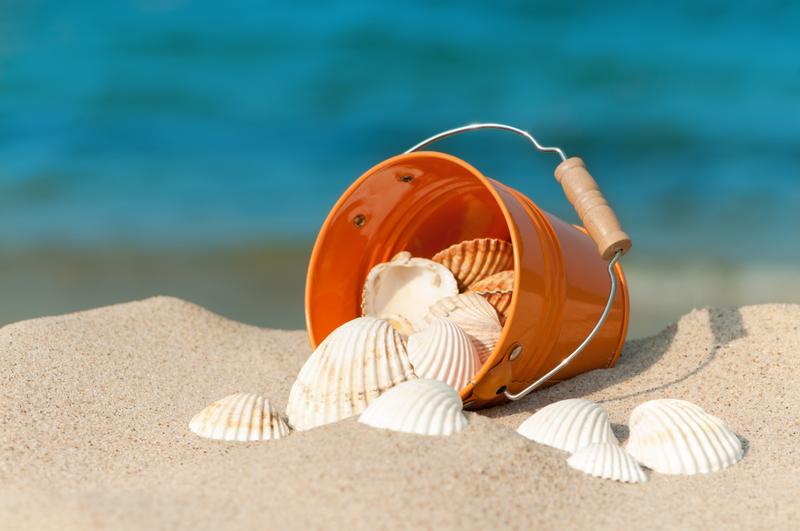This page has been automatically translated. Please refer to the page in French if needed.
Holidays
Shells, sand, pebbles, driftwood... You can't pick everything up on the beaches
Publié le 08 août 2024 - Directorate for Legal and Administrative Information (Prime Minister)
Do you intend to bring back pebbles from your holiday to redo your bathroom or decorate your garden, or driftwood to decorate your interior? Beware, there are regulations in place to protect the fragile coastal ecosystem, with fines for damage to the public domain that can be very high.

The use of beaches is free and free according to the Environmental Code. However, picking up sand, pebbles or shells as holiday souvenirs is a practice that weakens the coasts and is regulated by law with fines for offenders.
Indeed, article L.321-8 of the Environmental Code specifies that “the extraction of materials [...] is limited or prohibited when they risk directly or indirectly compromising the integrity of beaches, coastal dunes, cliffs, marshes [...]”.
The sand and the shells
It is forbidden to collect sand on the beach. The Environmental Code considers its removal as an infringement on the public maritime domain, weakening the coastlines. However, it is possible to collect "wind sand": that which has been displaced from the beach by the wind on the road or sidewalks.
The authorities can tolerate collection when it is done in small quantities. An unreasonable levy, sometimes for commercial purposes, is punishable by a fine of up to €1,500.
For empty shells, the restriction is the same as for sand.
The pebbles
On a beach, the pebbles protect the fauna and flora from swell and erosion.
Stacked pebble piles are fashionable but not without danger to the coastal ecosystem.
Gleaning pebbles can cost a fine of €1,500.
Flowers
The marine coastlines have a specific flora that grows only on the seashore and that is classified as protected. Cutting these plants may be worth €150,000 a fine for “harming the conservation of non-cultivated plant species”.
Driftwood
There are no official regulations for collecting water-polished wood brought back to the beaches by waves and tides.
The frosted glass
Sampling is permitted as it contributes to the cleanliness of the beach.
Shellfish
Do you like to pick up live shells and then enjoy them? Whether for environmental or health reasons, ask the city hall because the regulations may vary according to the departments.
FYI
the "seawall" is what is left by the sea as the waves move, as the tides ebb and flow. It forms a strip where living or living elements are accumulated (cuttlebone, algae, sponges, dead wood) and debris from human activities (plastic bags, pieces of fishing nets, oil pellets).
When the "sea leash" is not too polluted, it constitutes a real ecosystem that participates in the life of the coast, housing many microorganisms that live in the sand, feeding the plants that will help to retain the sand, as well as insects, birds, crustaceans.
Additional topics
Service-Public.fr
Agenda
Du 14 avr. au 15 juin 2025
Prévention Covid-19
Publié le 02 avril 2025
À partir du 2 avr. 2025
ETA
Publié le 24 mars 2025

